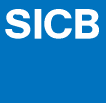 |
DAB: 1997 Fall Newsleter
This Newsletter by Section
Message from the Chair
Steve Nowicki
As we move toward the SICB 1998 Annual Meeting in Boston, Jan. 3-7, I'd like us all to ask ourselves how DAB can better serve its members. DAB has a long and illustrious history as a venue for animal behavior research in this country. It was the spawning ground for the Animal Behavior Society (ABS), and it continues today to be an important outlet for many of us who study behavior. Consider, for example, the string of important symposia we have sponsored or co-sponsored in the last several years. They include "Risk Sensitivity in Behavioral Ecology" organized by Peter Smallwood and Ralph Cartar for the St. Louis meeting, "Bats, Insects and Ultrasound" organized by Bill Conner for Washington, D.C. and Lee Drickamer's outstanding "Integration of Proximate and Ultimate Causation" symposium in Albuquerque. We are co-sponsoring a symposium on animal consciousness at the Denver meeting in January 1999; a difficult and fascinating topic, sure to draw a large audience.
At the same time — and in spite of our reputation for sponsoring excellent symposia — participation in other DAB activities remains relatively low, and has been low for several years. Many of us have discussed why this should be so, but I want us to turn our attention instead to the question of what we would like to do about it. This is a propitious time to consider where we want to take DAB in the future, for many reasons. SICB continues to move toward greater integration across divisions, perhaps most manifestly by increasing the programming of interdivisional contributed paper sessions. The shift of the Annual Meeting to early January should serve to increase participation by those whose fieldwork makes summer meetings difficult. The Ecological Society of America will be joining the Boston meeting and this will surely attract even more colleagues with common interests.
Perhaps most significantly, SICB continues to strengthen its commitment to, and its tangible support of, student members. This support makes it relatively cost-effective for students to attend our Annual Meeting. Further, with the advent of the SICB Grants-in-Aid of Research program, students may also receive critical research funding at an early stage in their careers. A DAB student member, Denise Pope, was among the first recipients of an SICB Grants-in-Aid.
The field of animal behavior also is changing. There is a renewed interest in Tinbergen's famous "four questions" and the integrative approach to the study of behavior these questions represent. Of course, this kind of integration is exactly what SICB is all about, so it is natural for DAB to serve as a bridge connecting the many disciplines which could contribute to an emerging new framework for behavioral biology. In this sense, DAB may represent one of the best "growth" opportunities for SICB.
How should we take advantage of this momentum? Let me ask all of you to take ten minutes (or more if you like!) to ask yourself this question. There are many issues we could consider. For example, how can we increase student awareness of the opportunities offered by DAB? How can we increase student participation in the Annual Meeting? How can we better communicate with members of ABS and encourage their participation in SICB? What kinds of connections can we make with other SICB divisions, both to broaden our own base and to promote more integration across the society? How can we continue to identify and promote first-rate symposia that will attract the interest of the animal behavior community? After you've given this a few minutes of thought, send me an e-mail with your ideas.
If at all possible, give me your thoughts before the Boston meeting. I'll summarize your ideas and bring them with me to the meeting. If I don't hear from you before January, I'll look for you at the meeting to solicit your input. My goal is to come up with a concrete framework of ideas for the future of DAB that we can act on at our business meeting.
Most of us affiliated with DAB also are members of one or more other scientific organizations that provide us with an outlet for our interest in animal behavior. But DAB provides us with unique opportunities. How should we capitalize on that word "integrative" that figures so prominently in SICB's name and philosophy, and how can we benefit from and contribute to the momentum SICB has developed in the last couple of years? Let me have your thoughts! I look forward to seeing you all in Boston!
The Society for Integrative and Comparative Biology
1313 Dolley Madison Blvd Suite 402
McLean VA 22101
Phone: 703-790-1745 or 800-955-1236
FAX: 703-790-2672
E-mail: SICB@BurkInc.com